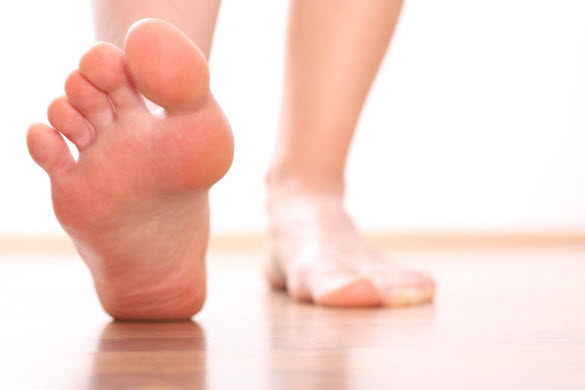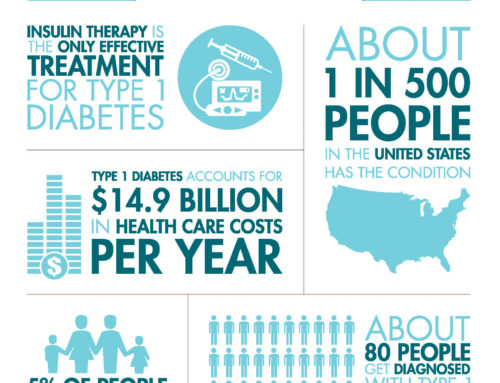Prevention is better than cure! Contrary to the popular belief, diabetic feet don’t need to hurt. Healthy feet are happy feet, so let’s begin taking care of our feet by following these general foot health guidelines.
Do’s of Diabetes Foot Care:
- Keep your blood glucose levels in your target range through healthy eating and daily exercise. It is the most important thing you can do to prevent or decrease nerve damage caused by diabetes. Work with your healthcare provider to create a plan that fits well with your lifestyle.
- Wear shoes that fit well and have good support. Even diabetic shoes can cause foot injuries if they are not the correct size for your feet. Have your shoes professionally fitted by a footwear specialist.
- Make sure the inner lining of your shoes is smooth and there aren’t any prominent seams across the toes.
- Buy shoes late in the day when feet tend to be largest to ensure that the shoes aren’t too tight. Shoes should be immediately comfortable. Those that need “breaking-in” are not recommended. Avoid wearing new shoes more than two hours at a time. Gradually add 40 minutes every day until you can wear them the whole day without skin irritation. Keep rotating your shoes; don’t wear the same ones every day. This prevents your feet from becoming overly accustomed to a single shoe.
- Check your shoes before putting them on for small pebbles, worn areas, rough spots, sand and other skin irritants.
- Wear comfortable and fitted socks in your shoes and change them every day. Fibers such as wool, cotton and acrylic are best as they wick away moisture. Socks are better if they are non-binding without seams or mended areas. Light colored socks are best as bleeding or draining pus from any cut or sore can be easily noticed.
- Keep the blood flowing into your feet. Move your ankles in and out and up and down to improve blood flow. Put your feet up when you are sitting. Wiggle your toes for 5 minutes, 2 or 3 times a day.
- Make sure there aren’t any items lying around in the house you are likely to bump into or trip over. Make sure to light the pathways used at night.
- Exercise- Daily exercise helps you achieve a healthy weight and also plays an important role in keeping your blood sugar and blood pressure under check. Ask your doctor to plan an exercise program that is right for you. If you have neuropathy, it is important for you avoid exercises that put additional weight on the feet such as running and jumping. Walking, swimming, bicycling and dancing are non-weight bearing exercises that are easy on the feet. Always include a short warm-up or cool-down period. Make sure to wear shoes that fit well and offer good support, shock absorption and protection. Athletic shoes with gel soles and rubber bottom are recommended.
- Check your feet during cold temperature. Diabetic feet are especially susceptible to frost bite. Wear socks at night if your feet get cold.
- Make sure your blanket is loose at the foot end so it won’t put pressure on your toes and feet while you sleep.
Don’ts of Diabetes Foot Care:
- DO NOT smoke. It narrows and hardens arteries decreasing blood supply to your feet which causes impaired wound healing. Majority of the diabetics who need amputation are smokers.
- DO NOT drink alcohol in excess. Excessive consumption of alcohol can speed up nerve damage and increase chances of having diabetic foot complications.
- DO NOT wear sandals, flip-flops, pointed toes, high heels(less than 2.5cm is ideal) and plastic shoes as this type of footwear puts additional pressure on the feet contributing to bone and joint problems as well as causing ulcers.
- DO NOT wear over the counter in-soles as they can cause blisters.
- DO NOT wear tight clothing around the legs. Thongs, pantyhose, knee-highs, thigh-highs, garters and elastic or rubber bands can be constrictive to circulation in your legs and feet.
- DO NOT walk barefoot, not even indoors. Buy a pair of well-fitting shoes that are just for indoors.
- DO NOT cross your legs for long periods of time. This can decrease blood flow to your feet. If on a plane, get up and move around every 2 hours.
- DO NOT use heating pads, hot water bottles or direct heat to warm your feet. Loss of pain and temperature sensitivity makes these dangerous and it’s easier for you to burn your feet without even realizing it. Best way to help cold feet is to wear warm socks.
- DO NOT use chemicals and strong antiseptic solutions such as iodine, hydrogen peroxide and salicylic acid on your feet. It can cause serious damage.
- DO NOT try to treat calluses and corns yourself. See your healthcare provider.
- DO NOT exercise when you have a foot ulcer, open sores or other injuries on your feet. Let them heal first.
- DO NOT have pedicures by non- professionals.
Good News Note:
The good news about managing diabetic foot complications is that it’s all up to YOU. So take back the control. Keeping your blood glucose in check, daily foot care, early identification of a foot problem and early intervention to prevent further deterioration are the key to minimizing serious long term foot damage caused by diabetes.!
Diabetes and Foot Care … read more:
- Diabetes and Alcohol Consumption – Latest Release








Leave A Comment